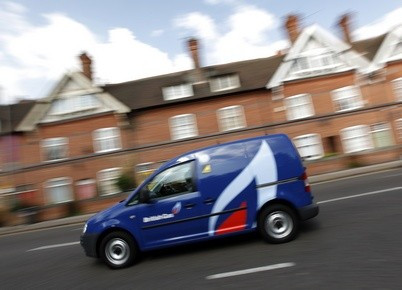Are Energy Companies Handing Ed Miliband the Keys to 10 Downing Street?

Ed Miliband has stepped up his campaign to position Labour as on the side of hard pressed families with a double-headed assault on energy firms and payday lenders.
His pledge to target big energy companies were highlighted when, for the second time in a month, one of the so-called Big Six power firms announced price hikes of more than 9% - a move that will no doubt warm the heart of Miliband's election team.
The move came on the same day the Labour leader said it was "payback time for payday lenders" and pledged a future Labour government would slap a levy on their profits to help fund lower-cost credit unions.
Miliband's surprise announcement during his September conference to freeze energy prices for 20 months if Labour is elected in 2015 has won widespread public support and left the coalition government struggling to offer an equally compelling alternative.
It has dominated much of the subsequent political debate and thrown the government onto the back foot.
Just days ago one of the biggest firms, SSE, hiked prices by more than 8%, and now British Gas has announced average rises of more than 9% leading Miliband to insist it is the best example of why his planned freeze is essential to protect consumers.
The clear message is that the companies are profiteering and putting the interests of their shareholders ahead of the interests of their customers.
The fact that they all appear to increase prices at the same time and in line with each other has also seen claims they are acting, in effect, as a cartel. Something they have robustly denied.
While the firms claim the increases have been forced on them by hikes in the cost of buying energy on the global markets, the government has struggled to find an answer beyond telling customers to "shop around" for cheaper deals.
Energy Secretary Ed Davey described the latest round of increases as "extremely disappointing" but repeated the message that consumers should consider swapping suppliers, advice that was later reiterated by Prime Minister David Cameron in a radio interview.
Shadow energy secreaty Caroline Flint added: "These latest price rises show clearer than ever why Labour's price freeze is needed. People are sick and tired of being left out of pocket because of David Cameron's failure to stand up to the energy companies."
Meanwhile, Miliband's decision to hit payday loans companies has also tapped into a deep public concern over the behaviour of some of the companies and suggestions they are praying on the most vulnerable.
Many of the companies, which have become familiar names through their advertisements in the media and on the internet, insist they are responsible lenders and are helping people through hard times.
Critics, however, believe they are making multi-million pound profits through astronomical levels of interest and are all too often driving struggling families deeper into financial difficulty with little regard for the consequences.
The industry has already been referred to the Competition Commission and tough new rules are promised with "affordability checks" becoming compulsory before loans are offered.
But Miliband insists all these different pressures are creating a personal debt crisis and he is promising to act.
His two-pronged assault is part of his wider political agenda of moving the pre-election debate away from the recovering economy and onto what he has dubbed the "cost of living crisis".
For the past couple of weeks he has hammered home his attacks on the government for failing to offer any help for ordinary families and accused them of always standing up for the wrong people, namely the powerful and wealthy.
The prime minister, however, has accused him of offering people an energy "con" because the effect of his policy would be to see the firms increasing prices before the freeze and again after it.
The only way to offer genuine, sustainable help for "hardworking families" is, he says, through continuing economic policies that stimulate growth, jobs and investment.
What worries the government, however, is the apparent success of what they regard as "populist" measures by Miliband which seem to be driving the political debate.
David Cameron's strategy, meanwhile, is to play this long in the belief the economy will continue to grow. His spokesman said: "Hardworking families are seeing their household budgets being squeezed. Nobody wants to see their bills going up which is why it is critical to see growth, jobs being created, lower personal taxes and getting a grip of the public finances.
"We have targeted support at fuel duty, council tax and getting low mortgage rates. These things are important in helping families."
Cameron believes that, come the next election, his strategy will have been proved right and that voters will feel the benefits of economic improvements in their paypackets and pockets.
© Copyright IBTimes 2024. All rights reserved.























